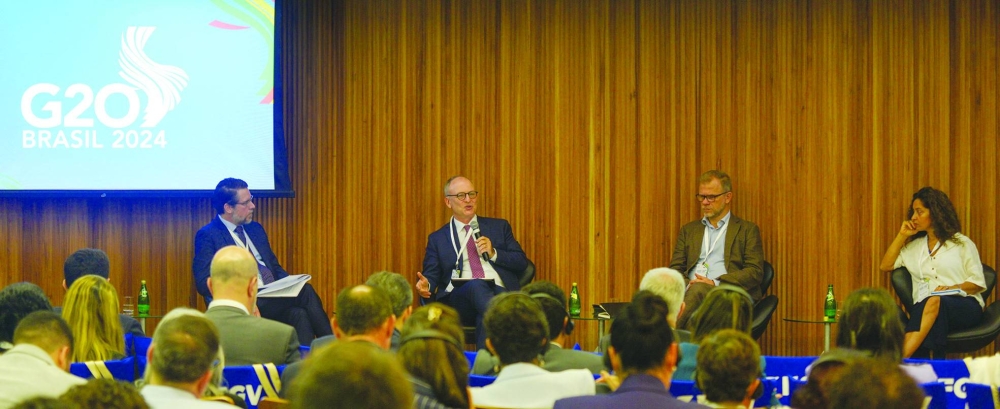Education Above All (EAA) Foundation, the OECD Network of Foundations Working for Development (netFWD), and Fundação Getulio Vargas’ Division for the Development of Public Management and Educational Policies (FGV-DGPE) co-hosted a high-level event, 'Catalysing Change: Education’s Role in Building a Just and Sustainable Future,' during the G20 Leaders’ Summit in Rio de Janeiro.
The event highlighted the essential role of education in addressing climate change and advancing equality, aligning with Brazil’s G20 Presidency theme, 'Building a Just World and a Sustainable Planet,' a statement said Wednesday.
The event brought together global leaders, educators, climate and health experts, and youth advocates to explore how education can drive resilience, equity, and sustainability across global agendas. The two-part event fostered meaningful dialogue and actionable insights on the transformative power of education.
A high-level breakfast featured opening remarks from global leaders, emphasising the connection between education, climate, and health as foundational pillars for a resilient and equitable future. Following the opening, a round-table discussion focused on integrating education into climate and health policies to effectively address today’s most pressing challenges.
During a technical session, panel discussions and workshops explored topics such as innovative financing for education, climate-resilient learning, the role of foundations in sustainable development, and youth-driven advocacy for systemic reform. They highlighted strategies to incorporate education into climate adaptation efforts and public health preparedness, reinforcing its central role in addressing global inequalities.
Mohamed al-Kubaisi, acting CEO of Education Above All Foundation, said: “To achieve sustainable development goals and ensure equitable access to quality education, we must prioritise innovative financing solutions and collaborative approaches. EAA has provided educational opportunities to over 19mn out of school children and youth across 60 countries, leveraging nearly $3bn in co-funding through strategic partnerships. Closing the gap faced by over 260mn children and youth worldwide without access to education is critical for building a resilient, sustainable future.”
Henrique Paim, director of the Public Management and Educational Policy Development Division at Fundação Getulio Vargas, stated that education is a cornerstone in addressing persistent social, environmental, economic, cultural, and ethical challenges. To achieve this, he emphasised the need to develop and strengthen pedagogical practices that are forward-looking and adaptable to today’s rapidly evolving, innovation-driven landscape.
Federico Bonaglia, deputy director of the OECD Development Centre, underscored the importance of addressing today’s global challenges and calls for a more inclusive multilateral system that amplifies voices from the Global South and inclusive partnerships that engage a diverse spectrum of actors, including philanthropy.

